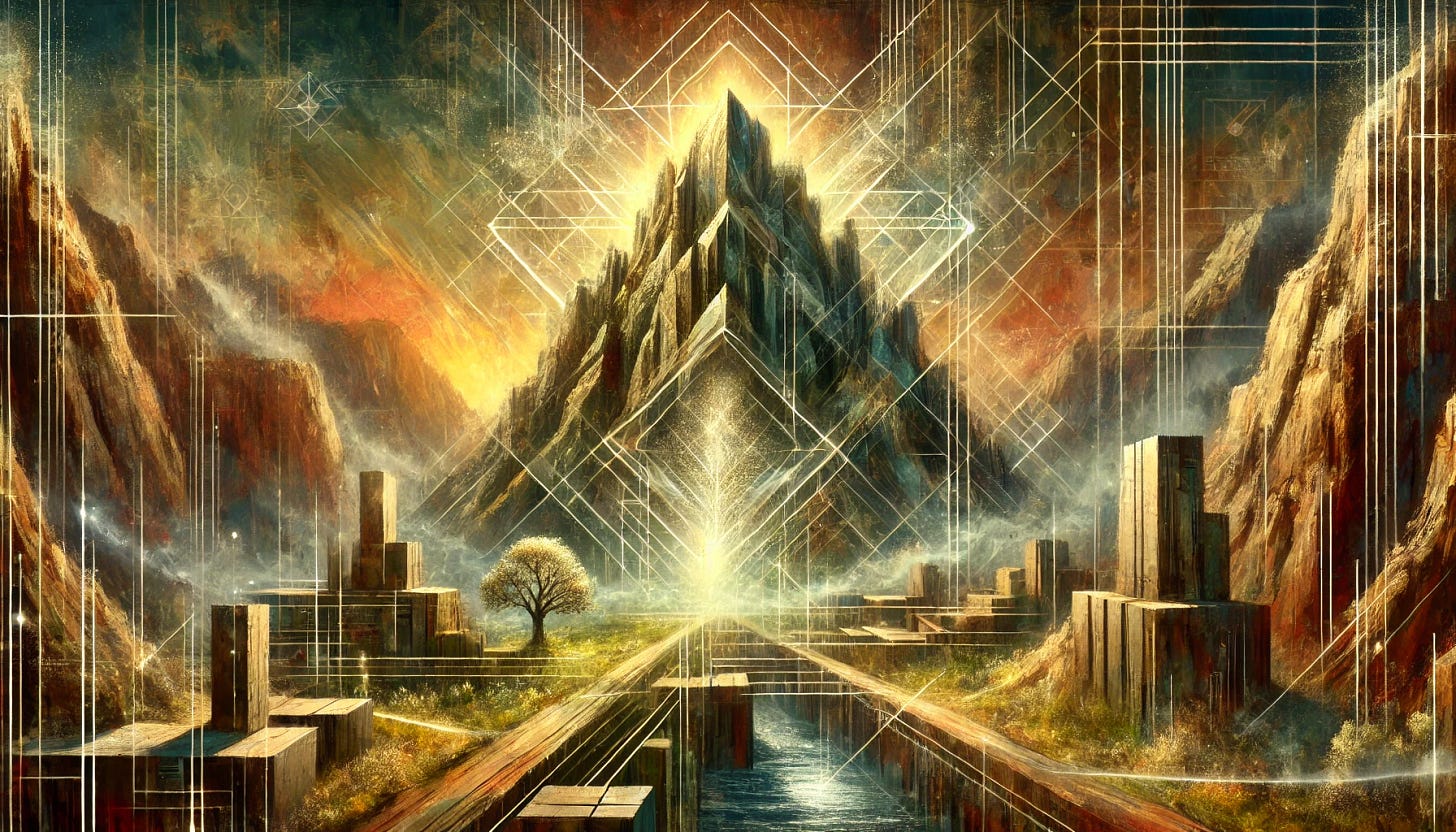Ziklag - Angels from the Trinity
God Reveals His Plural Glory in Elevating Messengers
“He sent and signified it by His angel to His servant John.” — Revelation 1:1
⸻
Are angels just spiritual deliverymen? Or are they something more?
In the Book of Revelation, angels appear again and again—blowing trumpets, pouring bowls, guiding prophets, and proclaiming judgment. But they’re not the stars of the story.
The angels in Revelation are servants of the Triune God. They reflect the order, purpose, and power of the Father, Son, and Holy Spirit. This article will show you how angelic action points us back to the Trinity, and how their ministry can deepen your faith in God’s plan.
⸻
1. The First Angel: Revelation Comes from Above
Revelation 1:1
“The Revelation of Jesus Christ, which God gave Him… and He sent and signified it by His angel to His servant John.”
Here we see a holy chain of communication:
• God the Father gives the message.
• Jesus the Son receives and reveals it.
• An angel delivers it to John.
• The Holy Spirit illumines it (see Rev. 1:10).
Angels are not inventors—they are messengers under authority, reflecting the perfect order of the Trinity.
Takeaway: Revelation begins with a whisper from the throne room. Angels are not magicians; they are faithful transmitters of God’s plan.
⸻
2. The Herald Angel: Preparing the Way
Revelation 5:2
“Then I saw a strong angel proclaiming with a loud voice, ‘Who is worthy to open the scroll…?’”
This angel doesn’t act—he announces. He issues a challenge that only Jesus can answer.
• The Father holds the scroll.
• The Son alone is worthy to open it.
• The Spirit’s power is soon to pour out (Rev. 5:6).
• The angel prepares the stage for the Lamb’s glory.
This angel is like John the Baptist in heaven—pointing, not performing.
Takeaway: Angels stir expectation, but never steal the show. They glorify the Son by inviting worship.
⸻
3. The Worship Angel: Prayer Rises with Fire
Revelation 8:3–5
“Another angel… was given much incense, that he should offer it with the prayers of all the saints…”
Here we see a heavenly priest:
• He brings incense and prayer to God.
• He casts fire down upon the earth.
• This is where worship becomes judgment.
The Father receives the prayers.
The Son’s sacrifice makes them holy.
The Spirit groans and intercedes.
The angel holds it all with reverence.
Takeaway: Angels are not mechanical. They handle our prayers with trembling. Your voice reaches heaven—and heaven responds.
⸻
4. The Mighty Angel: Revelation with Thunder
Revelation 10:1–11
This angel is clothed with a cloud, rainbow on his head, one foot on sea and one on land. He holds a little book and swears by the eternal God.
• The angel’s appearance mimics divine majesty, but he is not God.
• He raises his hand and swears by Him who lives forever—distinguishing himself from the Trinity.
• John is told to eat the book—sweet in the mouth, bitter in the belly.
This angel does not bring clarity but mystery.
Takeaway: Sometimes God sends angels not to explain but to awaken awe. They guard the limits of revelation so we know we’re not in control.
⸻
5. The Three Angels: Warning, Witness, Worship
Revelation 14:6–11
Three angels speak in rapid succession:
1. Preaches the eternal gospel to all nations.
2. Announces the fall of Babylon.
3. Warns of judgment for those who follow the Beast.
These angels are like heavenly street preachers, but with global reach.
• The Father desires all nations to hear.
• The Son is the message they proclaim.
• The Spirit is behind every tongue, tribe, and call to fear God.
Takeaway: God sends messengers because He is merciful. Even in judgment, He gives the world a chance to hear and repent.
⸻
6. The Bowl Angels: Judging the World with Fire
Revelation 16
Seven angels pour out bowls of wrath on the earth.
These are not rogue spirits or angry rebels. They act in strict obedience to the temple of heaven, sent out by one command.
• The Father decrees judgment.
• The Son’s blood vindicates the saints.
• The Spirit’s fire is in the bowls.
• The angels are servants of divine justice.
Takeaway: God’s wrath is not chaotic. It is holy, measured, and ministered by angels who tremble as they pour.
⸻
7. The Final Angel: Showing the Bride
Revelation 21–22
“Come, I will show you the bride, the Lamb’s wife.”
This angel escorts John to see the New Jerusalem. He shows the city, the throne, the river, the tree of life. He does not explain everything, but he lets John see what must be seen.
• Father and Son share the throne.
• The Spirit flows as the river of life.
• The angel gives the final witness.
Later, John tries to worship him—but the angel rebukes him:
“See that you do not do that! I am your fellow servant…”
Takeaway: The greatest angels are still only servants. They show us the glory of God and teach us not to worship them—but the One they serve.
⸻
What Angels Teach Us About the Trinity
Angels in Revelation are not fuzzy cherubs or anonymous forces. They are holy ministers—burning with purpose, soaked in heaven’s authority, echoing the will of the Triune God.
• They carry messages, but don’t alter them.
• They worship, but never accept worship.
• They warn, guard, and serve, all to magnify Jesus Christ.
In their fiery presence and trembling obedience, they reveal to us that the Trinity is not abstract. The Trinity commands, sends, empowers, and reigns.
And just like them, we are invited to serve the throne, bear the name, and worship the Lamb.




